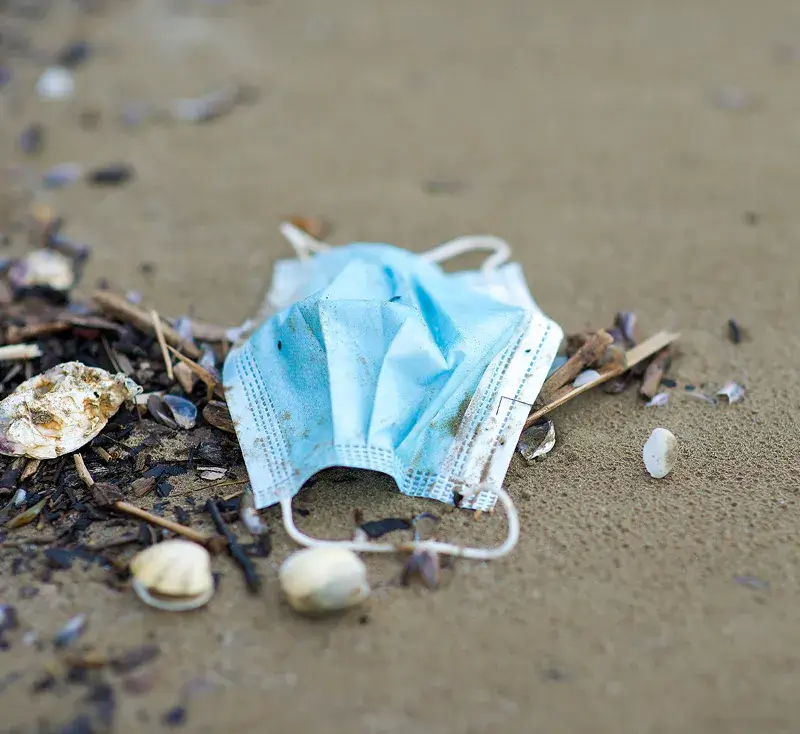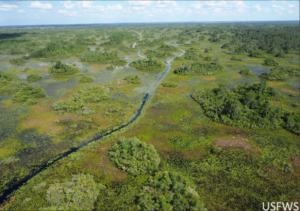
Face masks are showing up on beaches. OceansAsia, an intelligence-based conservation organization focused on marine ecosystems, reports that 1.56 billion face masks will have entered the ocean in 2020. They also state that, “These masks will take as long as 450 years to break down, slowly turning into microplastics while negatively impacting marine wildlife and ecosystems.”
Trash that is littered or dumped can find its way, by wind or storm, to our rivers and streams, eventually traveling to the ocean. On their way to the beach, they can ensnare wildlife, be consumed by marine life, or break down into tiny particles called microplastics. These are plastic pieces or fibers that are smaller than 5 millimeters in size and can include beads, fragments, pellets, fibers, and more. When they are consumed by marine life, they are undigestible and can lead to death. The plastic itself breaks down into chemicals in the body, let’s say that of a fish, which then is consumed by creatures higher on the food chain, specifically, humans.
Truth is, we ingest more plastic than we think. National Geographic states that, “it’s possible that humans may be consuming anywhere from 39,000 to 52,000 microplastic particles a year.” The breakdown of these plastics in our body affects our health especially from unknown chemicals.
We must stop trash and microplastics from getting into our waterways! Here’s what you can do:
- Take care of your own trash!
- Put your disposable mask into a trash container where it belongs.
- Do NOT litter and pick up litter when you see it.
- Reduce the amount of waste you produce.
- Use a reusable mask, buy a reusable water bottle instead of bottled water, and purchase items that are reusable rather than one-time use products.
- Choose to wash dishes instead of using disposable plates and tableware.
- NEVER use Styrofoam!
- Donate used clothing instead of throwing it out. If it’s too worn for donating, repurpose it as a rag to clean your house.
- Recycle. Check what items your municipality accepts and use your bin properly. Too many people toss unrecyclable items in the curbside bin resulting in the entire load being dumped as trash.
- Take the extra step. For recycling items not accepted by your municipality such as cell phones, ink and toner cartridges, electronics, make a commitment to get them properly recycled. Many communities have recycling events for these types of items.
- Participate in local clean-up efforts.
We can all help to make a difference!




